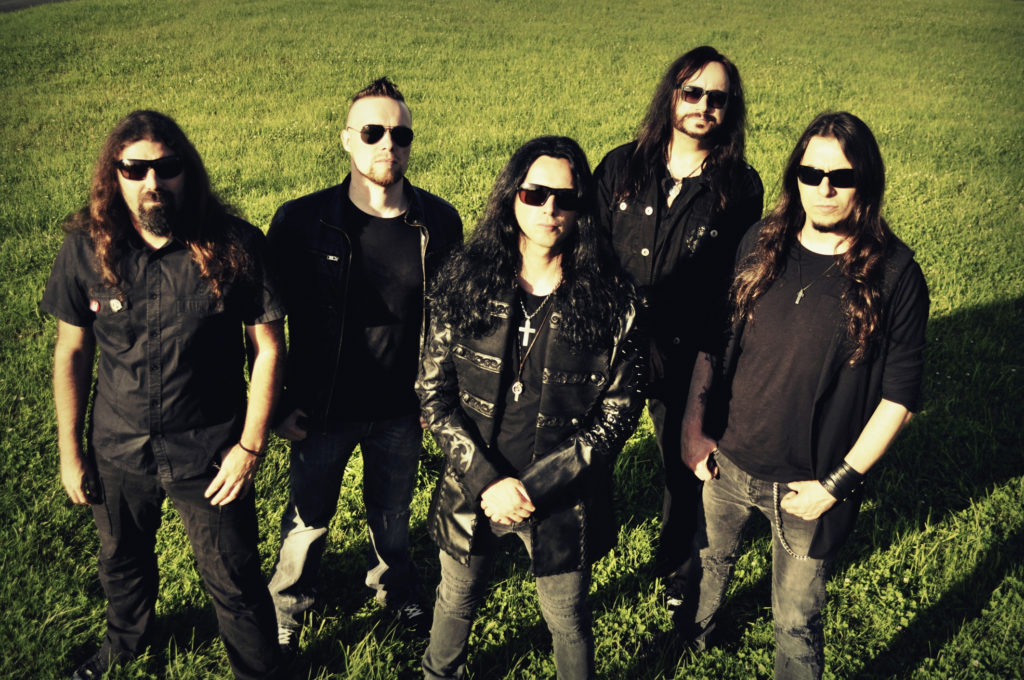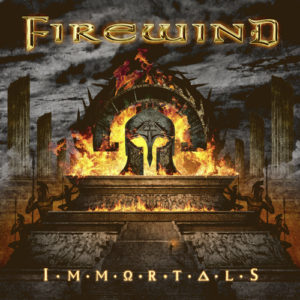
It’s been the subject of countless works of fiction and non-fiction, and is one of the most legendary feats of heroism and leadership to ever be recorded in the annals of history. Thanks to the creative liberties (effective and entertaining to be sure) for graphic novelist Frank Miller in his epic tome 300, and the subsequent movie adaptation in 200* by director Zach Snyder, the battle of Thermopylae has been somewhat distorted and mythologized in the popular imagination.
But the basics of the battle are true. The battle actually happened – in 480 B.C.E. The main character of the graphic novel and film, Leonidas (played on film with scene-munching glee by Scotsman Gerard Butler) was a real King, and was actually able to galvanize an incomprehensibly tiny band of fierce Greek warriors, led by 300 of his own Spartans, in a hopeless attempt to fend off an onslaught of epic proportions from hundreds of thousands of invading Persian troops.
Like any good story, it’s good versus evil against hopeless odds, with extraordinary examples of bravery and treachery in equal measure, as the Greek force, which had stubbornly and inexplicably been able to hold off the Persian horde at a narrow coastal pass termed the ‘Hot Gates’ aka Thermopylae, was betrayed by a Greek defector named Ephialtes who led the Persian army through a previously unknown secret path that led in behind the Spartans.
In the ensuing slaughter, nearly all the defenders were slaughtered, including Leonidas. But the word of the stubborn last stand by he and his Spartans brought the disparate and oft-warring rabble of independent Greek city states together in a common cause. Led by Athens and Sparta, the Persian army under King Xerxes was defeated on the seas at the Battle of Salamis and on land at Platea later in the year.
It is universally held by historians of all stripes that if not for the self-sacrificial bravery of the Greek forces under Spartan leadership at Thermopylae, the union of Greek nations would never have happened, and the face of what would become Europe and indeed the entire world would have been irreparably changed. In short, the loss at Thermopylae was ultimately a victory for what became known as Western Civilization. But outside the stuffy halls of academia, and the fanatic fans of the 300 graphic novel and film, even many Greeks do not laud this 2500-year-old event with the esteem by which is should be held.
Talented guitarist/songwriter Gus G, best known for his tenure with Ozzy Osbourne (from 2009 to 2011), and his long-time melodic metal band Firewind, felt the story needed to be brought back into the foreground of popular culture, and chose to structure the band’s new album, Immortals, around the events and significance of the battle of Thermopylae.
 “It was meant to be a concept album right from the beginning. It’s a discussion we’ve had between the guys for years that maybe we should do something that honours our heritage and history. You learn from being in a band for a while that timing is everything and sometimes things happen when they’re supposed to. And it’s partly the reason I chose Dennis Ward (Unisonic) to produce and co-write it with me because he is good at these things. I could tell him about the concept and what we want to achieve and he could go away, do his homework and come back with some great ideas,” said Gus (full name Konstantinos Karamitroudis) of the new album, set to be released on AFM Records on Jan. 20, 2017.
“It was meant to be a concept album right from the beginning. It’s a discussion we’ve had between the guys for years that maybe we should do something that honours our heritage and history. You learn from being in a band for a while that timing is everything and sometimes things happen when they’re supposed to. And it’s partly the reason I chose Dennis Ward (Unisonic) to produce and co-write it with me because he is good at these things. I could tell him about the concept and what we want to achieve and he could go away, do his homework and come back with some great ideas,” said Gus (full name Konstantinos Karamitroudis) of the new album, set to be released on AFM Records on Jan. 20, 2017.
“Dennis really helped focus on the concept and what the specific story is going to be. His role was very valuable because you can sit down with three or four guys in the band and the ideas could flow forever and you will never get anywhere. But Dennis was able to get us to focus on one idea, and that was the battle at the Hot Gates.
“And we chose that because it’s one of the most popular stories and it’s also an amazingly heroic battle. It was also an important story because with that war and the Persian invasion, it forced most of the Greek kingdoms to come together and unite to fight the Persians. We want to celebrate that history with the world. Our approach was that we see ourselves as sort of ambassadors of our country in the sense that we are musicians from Greece and we get to travel all over the world. When we meet people from America or Asia, South America and over other parts of Europe, they say they love so many things about Greece. We thought maybe we could talk about our heritage on at least one album. Another cool reason is that heavy metal music fits so well as a soundtrack to these kinds of stories. So we think it works on a lot of levels.”
Ward was brought in as a co-writer initially because Gus admits writing melodies and lyrics is not his strong suit and that he always prefers to work collaboratively. Ward was a trusted friend and also a vocalist in his own right, so the partnership worked well. Although an American, Ward was able to come up with the appropriately epic lyrics to go along with the story of such an epoch-making event in world history.
“The album isn’t a blow by blow narrative account of the battle. You can look at each song as sort of important snapshots of different parts of the story. Ode to Leonidas is exactly what it says it is – an ode to this great Spartan leader. It talks about him getting the message from the messenger about the Persian invasion force and making the decision to lead his 300 men and some other soldiers to the Hot Gates to defend all of Greece,” Gus explained.
“Lady of 1000 Sorrows is at the moment when Leonidas asks the Oracle for her advice. It’s like each song is a scene from a movie. Live and Die by the Sword is my favourite track on the record and it looks at the moment when Ephialtes has betrayed the Greeks and has shown the Persians a secret path around the Hot Gates. So it’s about the final stand of the Greeks, where they know they are totally outnumbered and likely to die, but they fight on to the last man anyways.”
The title is an interesting one, because as anyone with even a cursory knowledge of the history of the so-called Persian Wars knows that ‘Immortals’ was the term given to the elite Persian strike force. For Gus G, it has a deeper meaning.

“The whole story itself is now immortal. It has lived on for all these years and still is amazing to hear. It’s more about the immortal spirit of the Spartan warriors and it can also be seen as a metaphor for any group of people who fight for what is right, against all odds, to defend their country. It’s something that happened in almost every war since then and I believe that ideal needs to be celebrated,” he said.
Immortals is the seventh studio album for the Greece-based band, and first Firewind album since Few Against Many which was released in 2012. Gus said part of the reason for the lengthy gap was because he and his bandmates, particularly long-time members Petros Christodoulidis (bass) and keyboard rhythm guitarist Bob Katsionis, needed a break. The band is rounded out by drummer Johan Nunez, who has been in the group since 2012.
“Basically, we needed some time away – everybody in the band, especially me. I got so tired and I just wanted to co-write with other people and go out and do something different. I have been doing Firewind since I was a young kid: I was actually 18 when I started it. It was my baby and my dream. But it got to the point where I was feeling kind of burned out and wanted to take a step back and clear my head,” he explained, saying that’s why he chose to release two solo albums (his second and third after 2001s Guitar Master), I Am the Fire in 2014 and Brand New Revolution the following year.
“It was really healthy for me to do the solo project because I got to play with a lot of good people and got to write and work with different producers and writers. And, at the same time, we always knew we would come back to Firewind, so we took our time writing this new record and took our time finding who was going to be the new singer.”
One other significant factor in the five-year gap between studio albums was that the aforementioned need for a new singer after the departure of Apollo Papathanasio, who had been with Firewind since 2006. Instead of bringing in a complete newcomer, Gus decided to dig into his roster of close friends and former collaborators and tapped former Metalium and Sons of Seasons vocalist Henning Basse to be the new frontman. Basse had actually been the touring vocalist for Firewind in 2007 on their Allegiance tour, and since then had become a close pal of Gus, and had always been an ardent admirer of the band.
“First of all, he was not a stranger to us. He was a guy who had toured with us before and we knew from that experience that he was a guy we could get on a tour bus with and spend a lot of time on the road with. So that’s number one – he is a really good friend and this band is really based a lot on friendship. Of course it’s a business, but friendship is what has kept us together for all these years,” Gus explained.
“And number two he is an excellent singer and an excellent frontman. He can handle all our back catalogue with no problem at all. He is a great guy and a great singer, so we’ve got the whole package. And he is really a passionate, energetic guy; he loves this band, he loves Firewind. He was the guy who kept pushing me sayings, ‘you should do Firewind again and I want to be the singer.’ Henning is the kind of guy who just really wanted to do this and he loves this band, so for me that was very important.
“You have to love a band to want to join and do this, because it’s a tough spot for anybody to walk into a band that has an existing career of 10 plus years and seven records and knowing that you’re going to be compared to the singers who came before you.”
Musically, Gus believes that Immortals is an album that is truly definitive of the Firewind sound.
“A lot of the stuff on this album is a collection of ideas from the past right up until now. Some I had since 2009 and some is from sessions I had from 2013 to 2015 when I was doing my solo albums. I had an idea during that time that was sounding more speed metal-ish or power metal-ish I would put that to the side and say to myself that I would save this for later whenever we do the next Firewind record. And I think after all these years and after all the things that I have done, including my time with Ozzy, what Firewind is to me now is pretty obvious,” he said.
“It’s pretty clear that this is a band that sounds very European. Of course it sounds heavy and all that, but it’s also very melodic. I think we fall into that category of melodic power metal, even though we never felt like we were one of those bands – but I guess we are. So, to me, it’s clear that this is what we should be doing. This is what our fans liked from us in the first place, so there’s no reason to change that up. And that’s why when I solo project comes up, I can do whatever else I feel like doing without ever having to compromise my Firewind style.”
 It was while touring in support of Firewind’s The Premonition album that he got the call from Ozzy Osbourne’s camp to come and audition to replace Zakk Wylde as the rock legend’s new guitarist. Gus G got the job, and contributed to Ozzy’s last solo album, 2010’s Scream. But when Black Sabbath reunited in 2011, Ozzy put his solo career on hold, and Gus was free to return to Firewind.
It was while touring in support of Firewind’s The Premonition album that he got the call from Ozzy Osbourne’s camp to come and audition to replace Zakk Wylde as the rock legend’s new guitarist. Gus G got the job, and contributed to Ozzy’s last solo album, 2010’s Scream. But when Black Sabbath reunited in 2011, Ozzy put his solo career on hold, and Gus was free to return to Firewind.
“When I started with Ozzy it was great and it changed my life for the better. But then it stopped pretty quickly just two years later because he went on to do Sabbath again. I thought that was awesome because I am the biggest Black Sabbath fan and I hope they never quit. Playing with Ozzy has opened so many doors because playing with Ozzy is like the Holy Grail for guitarists. Just think of the people who have come before me, like Randy Rhoads, Jake E. Lee and Zakk. And you look at Zakk and how when he left Ozzy he forged his own path and is doing great,” he said.
“And like him, I looked at it and thought that I have been given this amazingly big platform and playing with this legend you have to just continue doing what got you to that position. You can’t allow yourself to get lazy and complacent thinking you’ve made it. It’s about continuing to work hard and working on what’s next.”
With Sabbath seemingly coming to a final conclusion as a touring act, there have been rumblings over the last few months that Ozzy will return to his solo career. Thus far, Gus said he has not had any discussions with the singer’s management team about resuming his role as Ozzy’s sideman.
But Gus G is not waiting by the phone. Besides having an extensive set of tour dates for Firewind throughout most of 2017, he is also open to collaborating with other artists when it fits his schedule. In fact he was invited to do some solos on a forthcoming album from Scandinavian rock vocal legend Jorn Lande on his new project.
“I do guest spots from time to time. Not as much as I used to, but I always love a chance to work with my friends,” he said.
For more information on Firewind and Immortals, visit www.firewind.gr.
- Jim Barber is a veteran award-winning journalist and author based in Napanee, ON, who has been writing about music and musicians for a quarter of a century. Besides his journalistic endeavours, he now works as a communications and marketing specialist. Contact him at jimbarberwritingservices@gmail.com
